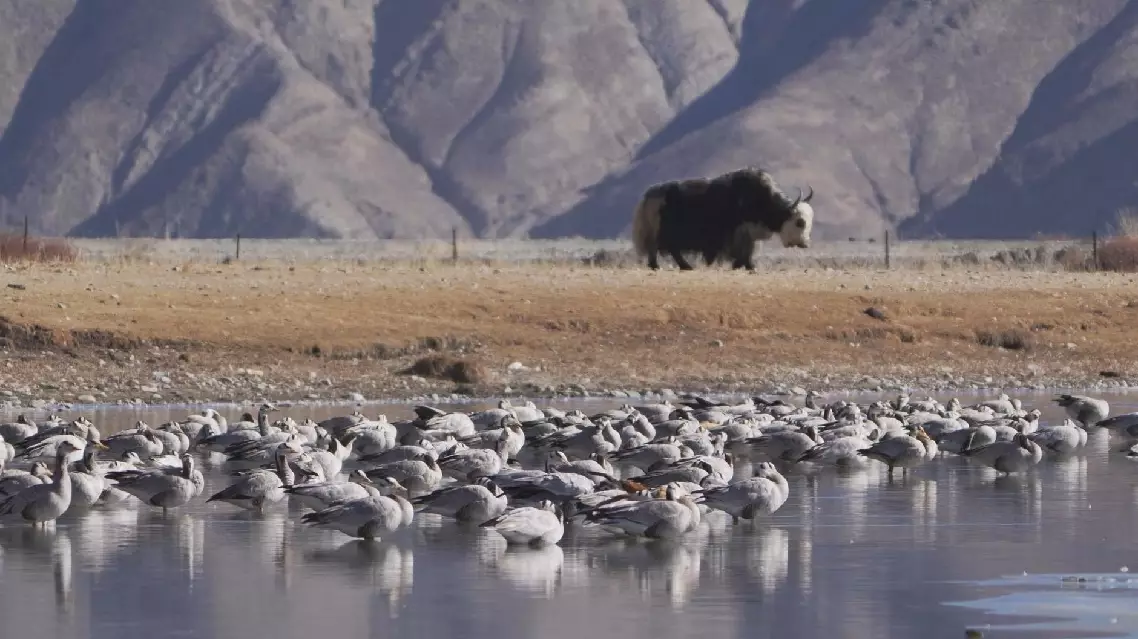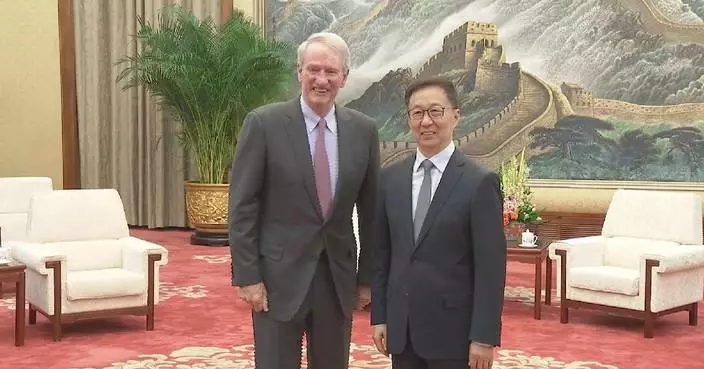Chinese President Xi Jinping's visit to Malaysia is set to spur new momentum in bilateral relations between the countries, said Dato' Abdul Majid Ahmad Khan, president of the Malaysia-China Friendship Association.
Xi arrived in Kuala Lumpur on Tuesday for a state visit at the invitation of Malaysian King Sultan Ibrahim Sultan Iskandar and wrapped up the visit on Thursday morning.
"[It's a] meaningful visit in terms of our bilateral relations. President Xi actually visited Malaysia 12 years ago, and during the period of last 12 years, Malaysia-China relations have really expanded. So we will expect the second visit will actually start another (wave of) momentum," he said.
Khan underscored that as the two countries embark on the second 50 years of their diplomatic journey, boosted ties may help Malaysia accelerate progress along its development pathway.
"Malaysia-China relations, economic cooperation, driven mainly by bilateral trade as well as investment, and also now people-to-people exchanges. The areas that we would like now to concentrate is actually to move to another level of development. Can Malaysia, like China, move into high tech, move up into the value chains. Here, we can learn a lot from China now through the last 30 years [when China] has actually make a breakthrough in technological advancement, in terms of new tools of growth, and also we would like to further deepen the supply chains between China, Malaysia and ASEAN," said the association president.
He also highlighted the importance China's Belt and Road Initiative (BRI) in helping to dramatically improve infrastructure in Malaysia.
"BRI to us is very important because it aims to actually [enhance] connectivity, particularly in term of global trading activities through construction support, railways, airports, the East Coast Railway Link. It is 80 percent completed and I firmly believe once this railway link is completed. It'll be a game changer for Malaysia," Khan said.
Malaysia is the second leg of Xi's current five-day, three-nation Southeast Asia tour, which began with a two-day state visit to Vietnam, and also takes him to Cambodia for a state visit.

Xi's visit to Malaysia to add new momentum to bilateral ties: friendship association head
Black-necked crane, a rare species under China's first-class national protection, has been living in harmony with local residents over the past years in their plateau paradise -- southwest China's Xizang Autonomous Region, thanks to the ecological conservation efforts made by local authorities and the care provided by the locals.
Every autumn, the village of Jianda in Shigatse City welcomes some distinguished guests -- over 1,000 black-necked cranes dressed in their elegant black-and-white "tuxedos".
Jianda is their exclusive "winter palace", where they are looked after by 75-year-old Tenzin. He has born witness to the village’s time-honored proud tradition of harmony with nature.
In this model of "human-crane cohabitation", the cranes stand guard as the farmers till their fields and they dance while the livestock graze on pasture. And in the golden glow of sunset, the village's chimneys puff out smoke to a chorus of crane calls, in celebration of a timeless pact between humans and birds.
Every year, when the wintering season ends and the cranes prepare to leave Jianda, Tenzin is always reluctant to part with his pets.
"They're leaving for Changtang [Plateau] again. I can't help but feel a bit reluctant to see them go," said Tenzin.
The black-necked crane, dubbed the "panda of birds", is the world's only crane species that breeds and lives on plateau. They mainly inhabit swamps, lakes, and floodplains at an altitude of 2,500 to 5,000 meters. In China, black-necked cranes are mainly distributed across the Qinghai-Xizang Plateau and the Yunnan Guizhou-Plateau.
Their food includes plant leaves, rhizomes and algae. The presence of the black-necked cranes is a sufficient indicator of the sound environment of the plateau wetland ecosystem.
Xizang has always prioritized eco-environmental conservation and kept reminding itself that conserving the ecology of the Qinghai-Xizang Plateau is the greatest contribution to the survival and development of the Chinese nation, said a white paper issued by the Chinese government in March.
The region is committed to maintaining harmony between humanity and nature in modernization. It also strives to continuously improve eco-environmental governance and protect biodiversity on the Qinghai-Xizang Plateau, according to the white paper.
Xizang has established 47 nature reserves of all kinds, covering 412,200 square kilometers. According to the second survey of terrestrial wild animals, there are 1,072 terrestrial wild vertebrate species and 246 wild animal species under special state protection in Xizang.

Black-necked cranes coexist peacefully with humans in their plateau paradise





















































